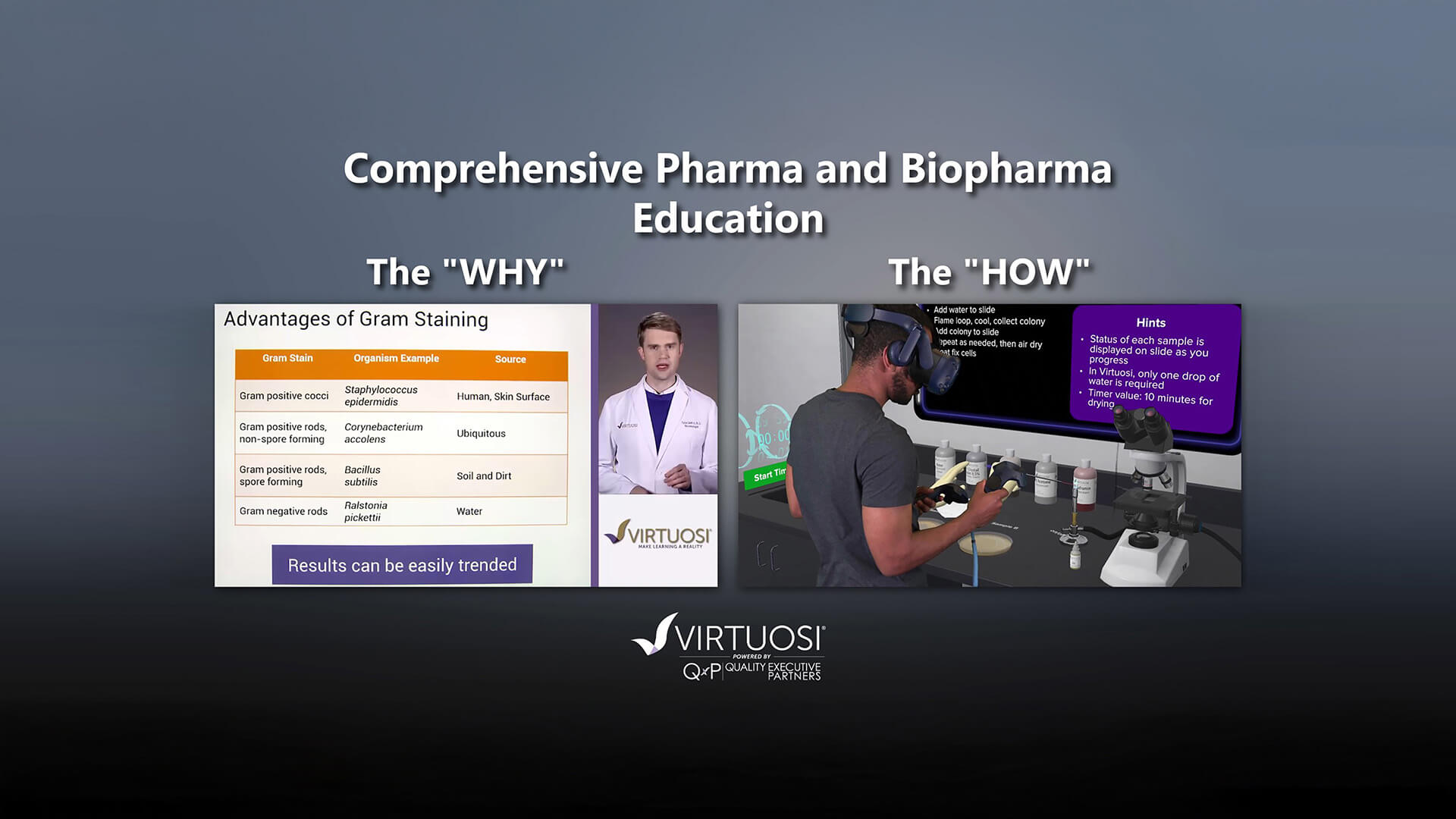
India has long been hailed as the “pharmacy of the world.” From supplying affordable generics to powering the global COVID-19 response, Indian pharmaceutical companies have played a central role in global health. But as the industry evolves, education and workforce training have become critical priorities for the industry’s continued success.
Here’s why, and how solutions like Virtuosi are emerging as essential tools for the next phase of Indian pharma’s global leadership.
1. Global Regulatory Scrutiny Is at an All-Time High
As Indian pharma continues to dominate exports to regulated markets like the U.S., EU, and Japan, the spotlight from global regulators, especially the U.S. FDA, has intensified.
Recent years have seen a spike in warning letters, import alerts, and site audits, often citing data integrity lapses and procedural non-compliance. "These issues directly impact business continuity, patient safety, and national reputation.
Education and continuous GMP training across all levels, from the shop-floor to senior leadership, are essential to ensure audit readiness, regulatory confidence, and a true culture of quality.
The Virtuosi® Advantage: This immersive, simulation-based platform brings aseptic, microbiological, and novel therapies to life through active, scenario-driven learning focused on real-world application. It helps teams internalize quality behaviors with no risk to process or product. AND Virtuosi is used by global regulators to train new inspectors for consistency knowing the content is developed by the best in industry.
2. From Volume to Value: The Shift to Complex Generics and Biologics
The next phase of growth in Indian pharma lies in complex generics, injectables, biosimilars, and specialty drugs. These products demand greater technical skill, scientific rigor, and regulatory precision.
This shift requires a new breed of professionals—those trained in:
- Process validation and characterization
- Analytical method development
- Regulatory writing for CTD submissions
- Quality by Design (QbD) and risk-based approaches
The Virtuosi® Advantage: Virtuosi offers structured, modular programs designed to upskill teams in these 3 critical areas and beyond, ensuring technical teams are not only competent but globally competitive.
3. Talent Gaps Are Real and Growing
While India produces thousands of pharmacy and life sciences graduates each year, a significant skills gap persists between academic output and industry requirements.
Most pharma plants still rely on on-the-job training or PowerPoint-based sessions, which often fail to prepare personnel for the complexities of GMP environments, modern production lines, and global regulatory expectations.
The Virtuosi® Advantage: With a modern, interactive platform that includes virtual reality modules, Virtuosi ensures deeper retention, faster onboarding, and more effective learning. The system is fully auditable, making training documentation inspection-ready.
4. India’s CDMOs Must Compete on More Than Cost
As India positions itself as a hub for contract development and manufacturing (CDMO) services, global sponsors are raising the bar on expectations, demanding transparency, compliance maturity, and seamless tech transfers.
CDMOs must go beyond “minimum compliance” to build trust and win long-term partnerships.
The Virtuosi® Advantage: CDMOs using Virtuosi can build training programs that align with sponsor expectations from Day 1. Whether onboarding a new molecule, scaling up, or preparing for a tech transfer, Virtuosi ensures consistency, competency, and confidence.
5. Digital Transformation Requires Reskilling
With Pharma 4.0 gaining traction, companies are investing in automation, MES, LIMS, and AI-driven quality systems. But without a trained workforce, these systems fail to deliver ROI.
Digital adoption must be matched by digital fluency, and that only comes through structured, ongoing training.
The Virtuosi® Advantage: Virtuosi delivers comprehensive education that goes far beyond traditional training. It is a change management enabler. It helps teams understand not just what the new tools are, but why they matter and how to use them effectively.
6. “Made in India” Depends on Making Quality the Standard
With government incentives boosting local API, KSM, and generic production, India’s goal of self-reliance in pharma manufacturing hinges on one factor: quality.
And quality doesn’t begin in the QA department. It begins with people, their mindset, and their training.
The Virtuosi® Advantage: By creating a common language of quality, Virtuosi helps organizations scale excellence across multiple plants, sites, and functions. It also enables leadership to track performance, identify training gaps, and mitigate compliance risks proactively.
Education Isn’t a Cost. It’s a Strategic Investment in Your Most Value Asset - People
For Indian pharma to sustain its global leadership, avoid regulatory disruptions, and move up the value chain, a revolution in workforce education is essential.
The companies that invest in continuous, immersive education today will be the ones that:
- Attract top global clients
- Accelerate tech transfers
- Avoid costly remediation
- And most importantly, protect patient safety
Virtuosi powered by Quality Executive Partners is more than a training solution. it’s a competitive advantage for Indian pharma.
To learn how Virtuosi can support your organization’s training transformation in quality manufacturing, reach out today. Let’s build a smarter, safer, and more skilled pharma workforce—together.
Let Virtuosi® be your quality foundation and your competitive advantage.
QxP Vice President Christine Feaster is a 20+ year veteran in pharma quality assurance. Prior to joining QxP, Christine was a vice president of U.S. Pharmacopeia.

